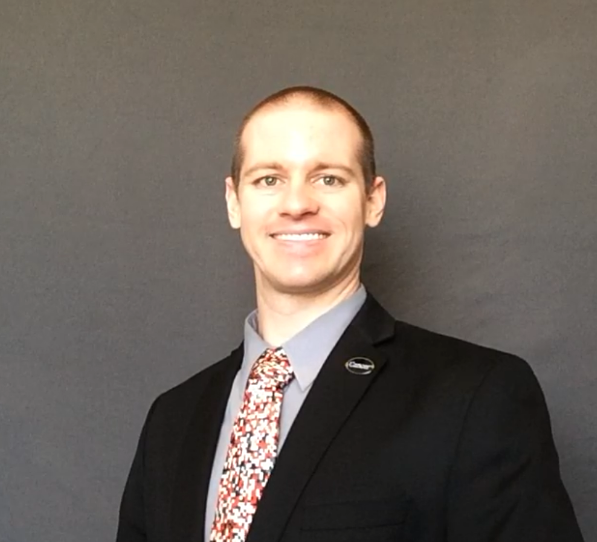February 2022 Recovery Story Spotlight
James Olander
Thank you so much for sharing your story with us and for being a member at the Eating Disorder Foundation!
Before we dive in, can you tell us when you were first introduced to EDF?
“Back in ~2016, the nutritionist I had been meeting with in Boulder had mentioned EDF. After attending a few groups, I knew it was a place I could see myself recovering at. So, I moved to Denver and made weekly support group attendance a part of the routine.”
How long ago did you start pursuing your recovery?
“In 2014, a treatment center brought it to my attention that the eating disorder (ED) behaviors were problematic and that some changes may need to take place.”
Can you summarize a bit on how your recovery journey has looked?
“The chaotic environment/situations faced in childhood led to the development of ED behaviors as a way to feel more “in control”. Overtime in recovery, I’ve been de-programming those behaviors.
Non-ED concerns (mental health / chemical dependency) led me to inpatient treatment; where I was diagnosed with ED. The staff showed me that:
- mal-adaptive behaviors negatively impacted many areas of life
- unhealthy coping mechanisms were no longer serving me
- healthy coping behaviors exist and can be used to approach life from a new perspective
- the variety of emotions I ignored/repressed can be felt and appreciated, especially the unpleasant ones
Outpatient treatment services continued building on the momentum that inpatient treatment started, which yielded living a life that was worth living.
Once I started building a supportive recovery environment at home and in interactions with others, so much began to change. Comfortability in disclosing the ED has been an ongoing challenge that I’m getting better at with each time I share it with people that have earned the right to hear it.
Life is significantly more enjoyable now than ever and I couldn’t be happier since ED is no longer limiting the way I live.”
What is one thing you wish someone contemplating recovery knew?
“You don’t have to go on living the way you had been living anymore, if you don’t want to.”
What are things that you, personally, have found most helpful in maintaining recovery?
- “Being vulnerable
- Allowing for feeling (and talking about) feelings
- Allowing for thinking (and sharing) thoughts
- Finding an abundance of alternative recovery pathways helps when I’m faced with decisions, since the options (now-a-days) I have to choose from usually are picking between 2 pro-recovery choices.
- The importance of ongoing renewal of commitment to staying on the recovery path.
- Staying connected with treatment team members. At first, it was really necessary to attend frequent inpatient treatment team sessions, maybe a few times a week. As I have progressed in recovery though, I’ve earned the right to increase the amount of time between appointments (to monthly or quarterly). This is due to having found ways to take agency in recovery and getting to practice implementing what they’ve taught me.
- Attendance of community based ED support groups help by:
-
- Allowing for accountability with others
- Giving a reminder that I’m not alone on this journey
- Normalizing eating disorders as valid concerns”

What are your favorite things that have come out of you choosing recovery?
- “Yoga teacher training helped regain body image confidence that ED had previously taken.
- Exploring global gastronomy allows me to be on an exciting continual journey of exploration.
- Discovering eating/walking/sitting meditations on a month long self-guided silent meditation retreat-which made eating/walking/sitting fun, new, and exciting again.
- Through Acceptance and Commitment Therapy’s exercises on values, I realized I value inner peace of mind. In honoring that, I live like a (part time) Buddhist monk (and/or dedicated Buddhist lay person). As I dive inward (asking my preferences for how to live without ED holding me back anymore), that’s what keeps manifesting as the destiny I need to live into. So, I often spend time contemplating the suffering that exists in the human experience. By making peace with life’s challenges, a simple way of living emerges. It’s strange, I know I’m weird, and I would not have it any other way.
- Each person that I’ve met in recovery is unique and I enjoy helping people find their true calling in life.”
